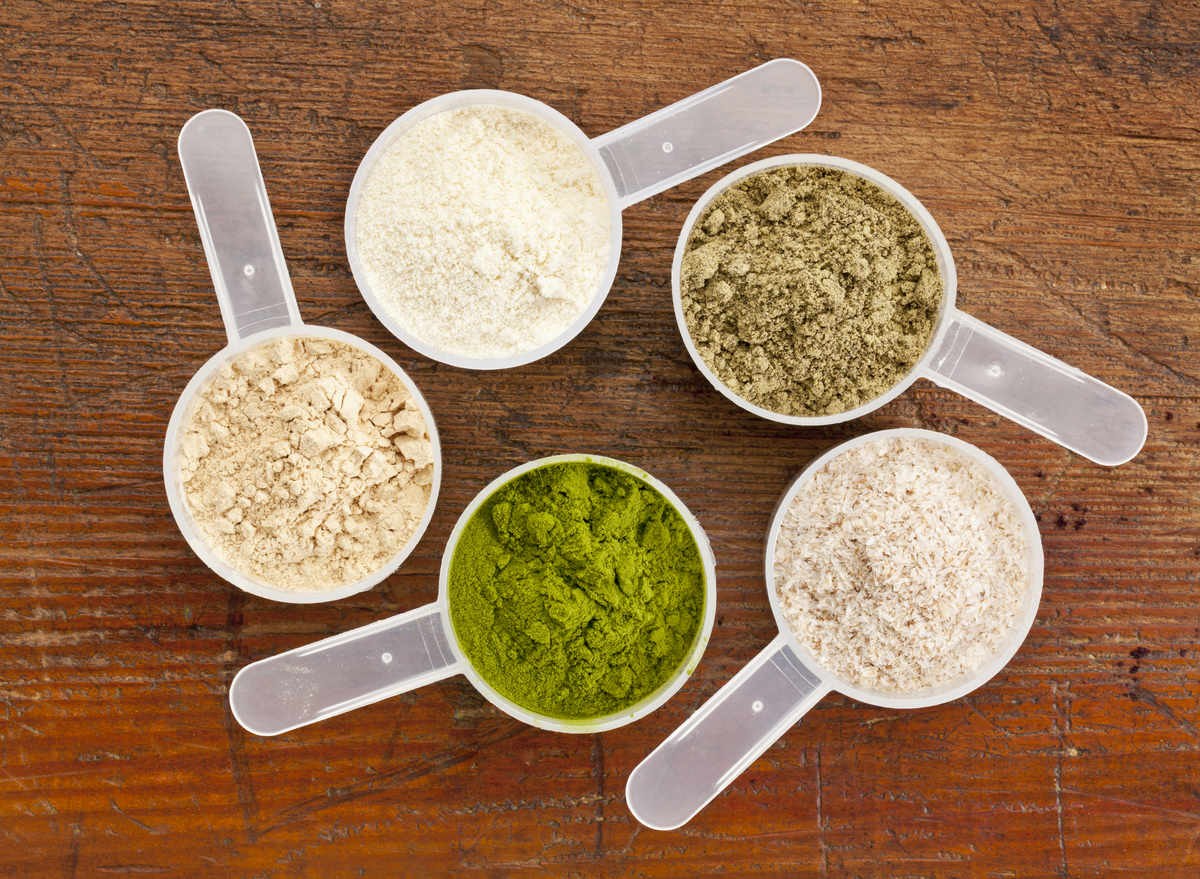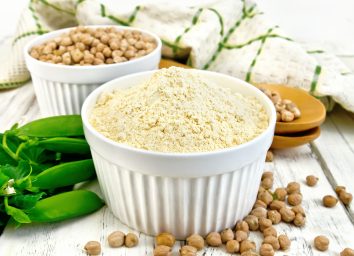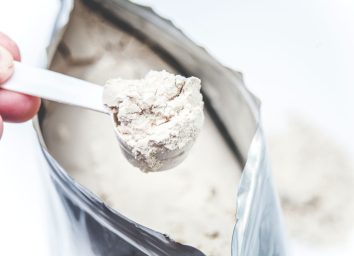Is Whey Protein Better Than Plant Protein? A Registered Dietitian Explains

It’s probably the most popular and controversial topic people bring up when they talk about the multi-billion dollar protein supplement industry. Whey protein vs. plant protein powder: which is better?
While both forms of protein can be made with high quality ingredients and can work for most people, there are pros and cons to each product.
What makes a “quality” protein source?
At the root of the whey protein vs. plant protein debate is really a question about protein quality. However, it’s important to keep in mind that protein quality isn’t the only factor in differentiating the two powders. And it’s certainly not the only metric you should use to determine which one to buy. Your goals and preferences should ultimately dictate which supplement is right for you.
With that being said, let’s review what defines a quality source of protein.
There are two main ways to determine protein quality:
- Amino acid levels and ratios
- Protein digestibility
The amino acid levels in plant vs. animal protein.
We typically think of high quality protein sources as foods that contain all nine essential amino acids. Essential means the body cannot produce these amino acids on its own and requires supplementation through diet.
Food sources that contain all nine amino acids are complete proteins. An incomplete protein is lacking in at least one essential amino acid.
- Animal proteins, like whey protein, are complete proteins. They generally provide all nine essential amino acids in the optimal ratios needed to sustain growth and metabolic processes in the human body.
- Plant-based protein sources typically have suboptimal levels and ratios of the essential amino acids. While this is true of many individual plant protein foods, you can easily solve this by combining two complementary proteins together into a protein powder blend. More on this later.
Protein digestibility of plant vs. animal protein.
It is also important to take into account protein absorption, and in turn, biological value. This is a measure of how much of the protein you consume from a food can be readily used for functions within your body.
Experts assess a protein food’s value by using the protein digestibility-corrected amino acid score, or PDCASS. They determine this number by calculating the total protein consumed and then determining nitrogen intake versus fecal excretion. The higher amount of nitrogen retained compared to what’s excreted through your waste is associated with a higher biological value for that given food.
- Animal based products, including dairy, meat, fish, eggs, and poultry have a high biological value.
- Plant-based proteins, like legumes, grains, nuts, and seeds have a lower biological value. Again, this relates to missing essential amino acids.
While low biological value sounds like a negative for plant protein, consuming adequate amounts of total protein, and pairing the right plant proteins together can offset this down side.
Besides protein quality, what are the other differences between whey protein and plant protein?
As mentioned earlier, protein quality is one of the biggest differences between the two protein sources, but it’s not the only factor.
Each protein source, whey and plant, also hosts its own unique nutrients, in addition to protein.
Let’s review the benefits and negatives of both whey and plant protein.
Whey Protein Benefits
Because whey protein is animal-based, it will naturally have all essential amino acids, including branched-chain amino acids (BCAA) that promote muscle recovery and synthesis. Because of whey’s higher concentration of BCAAs and its high biological value, some studies have noted more muscle protein synthesis for those who consume whey protein over plant-based soy.
Whey protein is particularly rich in calcium, healthy fats, and other beneficial compounds, such as omega-3 fatty acids. It’s important to note that whey protein concentrates are higher in these beneficial compounds than whey protein isolates. That’s because concentrates have less protein and more room for milk solids, where these compounds are located.
Negatives of Whey Protein
Since whey is a dairy product, it does contain lactose, which is a type of sugar many people have a hard time digesting. This, along with the negative impact of the meat and dairy industry on our environment, may be viewed as the negatives of choosing whey protein.
Benefits of Plant Protein
Plant proteins contain high levels of fiber and antioxidants, two important nutrients that are in low or even non-existent quantities in animal sources.
Soy protein powder is the only plant protein with concrete data that it contains all essential amino acids. So when it comes to protein quality, soy earns the highest mark amongst the plant proteins.
There is research to indicate hemp, rice, and pea proteins do have all essential amino acids, although much of this information is conflicting and differs brand to brand often based on fortification of the products.
Negatives of Plant Protein
Plant proteins have a lot more to offer than just protein; however, there is inconclusive information on plant proteins’ available essential amino acids. For this reason, those using protein powder for muscle gain may not want to opt for plant protein.
While it is very possible to consume adequate amounts of all essential amino acids from plant-based protein sources, it is something that require more diligence and mindfulness compared to simply consuming animal protein. That’s because there are fewer sources of complete proteins than there are incomplete proteins in the plant kingdom.
Many plant-based protein powders use a protein combining technique to make complementary proteins. This pairs at least two different plant protein sources together to make a supplement that contains all essential amino acids.
Can you make a conclusion that one protein source is better than the other?
When comparing whey protein vs. plant protein, you have to think about which fits in with your lifestyle.
Plant protein has a higher nutrient-density and is more environmentally friendly than whey. For these reasons, plant protein gains an edge over whey.
However, for those aiming for a muscle gain goal, whey protein may be more beneficial.








